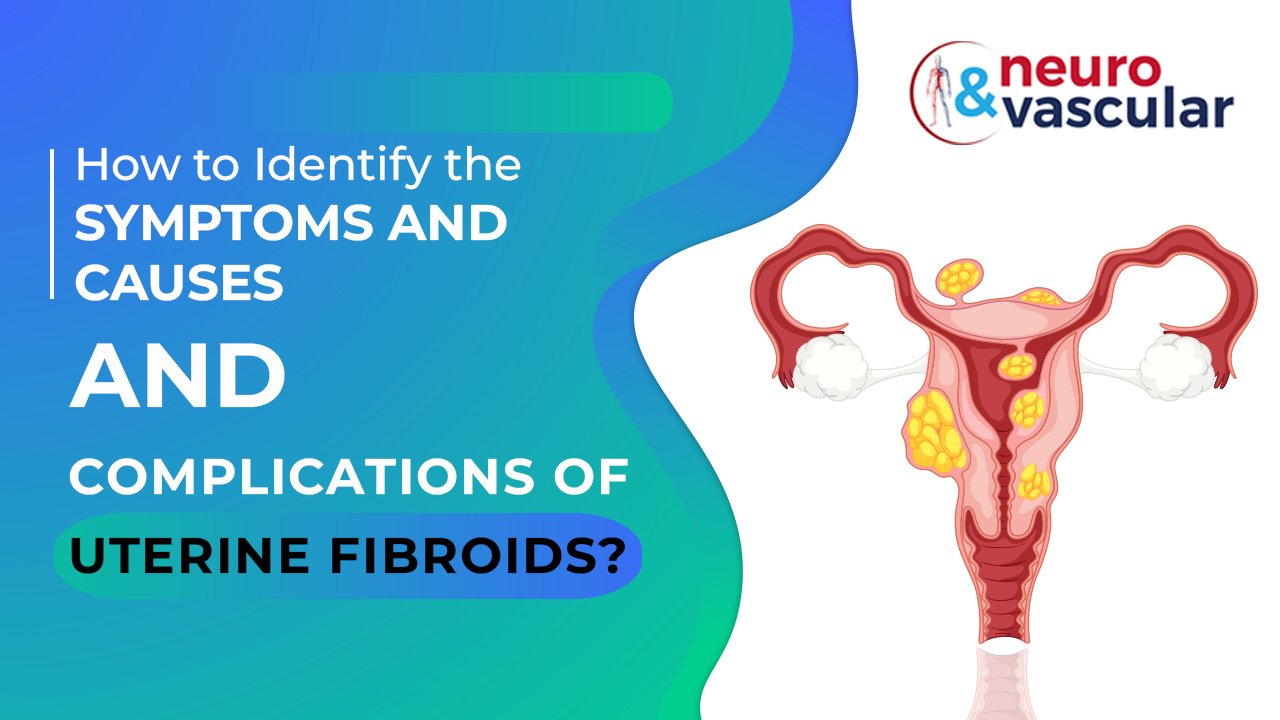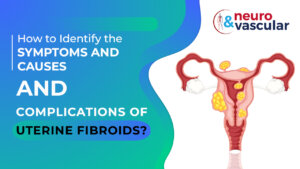
How to Identify the Symptoms and Causes and Complications of Uterine Fibroids?

Discovering Uterine Fibroids: What You need to know
Uterine fibroids are also known as leiomyomas or myomas. These are muscular tumors that can develop in the uterus. If unnoticed, it can turn into cancer. Uterine fibroids come in different sizes, shapes, and locations. They can appear in the uterus, its wall, or even on the outer surface. Some fibroids attach to the uterus through a stalk-like structure. They can be so small that they escape the naked eye or grow to create significant masses that impact the size and shape of your uterus.
At some point in life, many women can experience this uterine fibroids. However, it’s possible to have them without even realizing it. Since they often remain symptomless. During a routine pelvic exam or prenatal ultrasound, your doctor may discover these fibroids incidentally.
Symptoms of Uterine Fibroids
Many women endure fibroids without any noticeable symptoms or only experiencing mild ones. However, when symptoms do arise, they commonly include:
- Excessively heavy and agonizing periods
- Extended menstrual cycles stretching over a week
- Lower abdominal or back discomfort
- Painful intercourse
- Frequent urge to urinate
- Infertility
Must read: What Are Uterine Fibroids and what is the best treatment?
Understanding the Causes of Uterine Fibroids
The exact cause of uterine fibroids remains unknown to doctors. However, extensive research and clinical experience have identified several factors that contribute to their development. These are:
-
Genetic Alterations:
Numerous fibroids have genetic variations from those seen in healthy uterine muscle cells.
-
Hormones:
Estrogen and progesterone, which thicken the uterine lining throughout the menstrual cycle, also seem to impact fibroid growth. Fibroids generally shrink after menopause as hormone synthesis declines.
-
Other Growth Factors:
The development of fibroids may also be influenced by substances like insulin-like growth factors, which promote tissue maintenance in the body.
Extracellular Matrix (ECM): Fibroids contain an increased amount of ECM. This substance helps in binding the cells together. This fibrous material stores growth factors and induces changes in the cells themselves.
Doctors believe that fibroids originate from a single stem cell in the smooth muscular tissue of the uterus. Over time, this cell divides repeatedly, forming a distinct, firm mass separate from surrounding tissue.
The growth patterns of fibroids can vary. Some grow slowly or rapidly, while others remain the same size. Some fibroids may experience growth spurts, while others may naturally shrink.
Many fibroids present during pregnancy often decrease in size or disappear entirely as the uterus returns to its normal dimensions.
What are The Risk Factors for Uterine Fibroids?
Every woman should be aware of a few significant risk factors for uterine fibroids. Although being a woman of reproductive age is frequently associated with risk, there are a few additional significant factors to take into account:
- Hereditary: It is possible for a woman to get fibroids if anyone in her family has the same problem.
- Other risk factors: These include early first menstruation ( Menarche), obesity, vitamin D insufficiency, nulliparity ( No history/ event previous conception), high alcohol intake, diet high in red meat. These characteristics may also make you more likely to develop fibroids.
What are the Potential Complications of Uterine Fibroids?
Uterine fibroids are known for their non-threatening nature. It can be a cause of significant discomfort and complications, if you delay for uterine fibroid treatments. Fatigue resulting from heavy blood loss is just one possible consequence that be due to a drop in red blood cells.
The Influence of Fibroids on Pregnancy:
Fibroids generally do not obstruct conception. Certain types, such as submucosal fibroids, could potentially hinder fertility or lead to pregnancy loss.
Fibroids increase the risk of specific complications during pregnancy. Placental abruption, fetal growth restriction, and preterm delivery are just a few examples.
Uterine Fibroid Prevention
It may not be possible to completely prevent uterine fibroids. But certain lifestyle habits can help to decrease the chances. You can reduce risk by maintaining a healthy weight and incorporating fresh fruits and vegetables into your diet. Such as broccoli, cabbage, cauliflower, and collard greens, etc. These cruciferous vegetables are packed with essential nutrients like beta-carotene, folate, vitamins C, E, and K, as well as fiber. All these are very helpful to the body also. For more suggestion go for uterine fibroid treatments in Hyderabad.
When should you visit a doctor?
Don’t ignore these signs if you experience:
- Persistent pelvic pain
- Excessive bleeding or painful periods
- Spotting or bleeding between periods
- Trouble emptying your bladder
- Unexplained anemia (low red blood cell count)
Don’t hesitate to seek immediate uterine fibroid treatments in Hyderabad for severe vaginal bleeding or sudden sharp pelvic pain.
Conclusion
Understanding the symptoms and causes of fibroid can be complicated. Still, with the help of an experienced Interventional Radiologist, you can get an accurate diagnosis, fibroids treatment, and lasting relief from this condition. Do not underestimate the potential benefit of seeking medical counsel if the fibroid is suspected. Taking a proactive approach to preventing serious complications associated with fibroid is crucial, as is exploring your treatment options. It’s important that you seek professional help if you notice pain or other uncomfortable symptoms with your diagnosis. Education is key when it comes to understanding how to identify the symptoms and causes of fibroid. With guidance and care from a qualified interventional radiologist, you can finally plan a successful course of action to ensure long-term symptom management for a better quality of life.
About the Author:

Name: DR .SURESH GIRAGANI
INTERVENTIONAL RADIOLOGIST
DR. SURESH GIRAGANI CONSULTANT INTERVENTIONAL RADIOLOGIST at Apollo hospitals Jubilee Hills, has more than sixteen years of clinical experience in vascular interventions with a special interest in neurovascular and peripheral vascular disease interventional procedures.